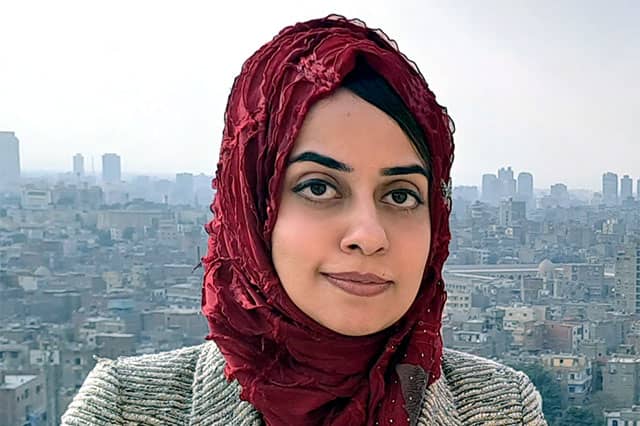
www.buildingsandcities.org/about/rihab-khalid.html
Rihab Khalid

Dr Rihab Khalid is an interdisciplinary, socio-technical researcher specialising in problem-driven and human-centred research in sustainable energy, climate and housing infrastructure. She primarily investigates the intersections between gender equity, energy access, and spatial justice in architecture and urban spaces in the Global South, operating at the nexus of the UN's Sustainable Development Goals 5, 7 and 11.
She has been working as the Isaac Newton Trust Research Fellow at the University of Cambridge, UK these past three years, and currently serves as a climate science advisor at ECIU and gender specialist for the UNDP in Asia and Pacific region.
Latest Commentaries
COP30 Report
Matti Kuittinen (Aalto University) reflects on his experience of attending the 2025 UN Conference of the Parties in Belém, Brazil. The roadmaps and commitments failed to deliver the objectives of the 2025 Paris Agreement. However, 2 countries - Japan and Senegal - announced they are creating roadmaps to decarbonise their buildings. An international group of government ministers put housing on the agenda - specifying the need for reduced carbon and energy use along with affordability, quality and climate resilience.
Building-Related Research: New Context, New Challenges
Raymond J. Cole (University of British Columbia) reflects on the key challenges raised in the 34 commissioned essays for Buildings & Cities 5th anniversary. Not only are key research issues identified, but the consequences of changing contexts for conducting research and tailoring its influence on society are highlighted as key areas of action.